Explainer: 70 years since Anglo-American coup against Iran’s Mosaddegh
By Ivan Kesic
Today, August 19, marks the 70th anniversary of the Anglo-American orchestrated military coup that overthrew the democratically-elected prime minister of Iran, Mohammad Mosaddegh, and restored the monarchist dictatorship headed by Mohammad Reza Pahlavi.
In a coordinated operation by the CIA and MI6, with the help of paid politicians, military officials, and media as well as staged demonstrations in the streets, four days of terror, murder, false flag bombing and sabotage led to the fall of Mosaddegh’s government.
The violent coup led to hundreds of deaths, the show trial of Mosaddegh, the autocratization of the state and 26 years of the reign of terror, which was ended by the Islamic Revolution in 1979.
The military coup on August 19, 1953, was the first of its kind and served as a template for numerous other US- and UK-orchestrated coups and "color revolutions" in the following decades.
What was the reason for the coup?
The reason for the coup was that the UK and the US were flustered by the fact that the Iranian people with their democratically elected government were able to manage their own energy resources.
Since the early 20th century and the start of oil extraction in Iran, the British had established a monopoly over the lucrative energy industry and used to give Tehran a tiny portion of the profits.
The Iranian parliament, headed by Prime Minister Mosaddegh, tried to negotiate an equal profit contract with the British-owned Anglo-Iranian Oil Company (AIOC), which London vehemently refused.
The AIOC was already infamous for its unfulfilled promises to build infrastructure, roads, schools and hospitals, as well as for the inhumane living conditions of domestic workers.
Following the AIOC's refusal to cooperate with the Iranian government, the Iranian parliament voted to nationalize the country’s oil industry and expel its foreign managers.
The British responded aggressively, imposing an economic blockade and seizing ships carrying oil exports, even considering military aggression and occupation of Iran's oil-rich southwest.
The joint Anglo-American decision to use their branched spy networks, previously established to suppress Soviet influence, to overthrow the Mosaddegh government with a coup d'état prevailed.
The official justification was that Mosaddegh was supposedly getting closer to the Soviet Union, just as they had occupied neutral Iran twelve years earlier under the pretext of getting closer to Germany.
London and Washington could have made Iran an equal ally, giving it fair trade deals, but they only saw it as an economic milking cow and a political slave who must obey their orders.
In addition, the duo feared that allowing Iran to nationalize resources would create a domino effect for similar moves by other states around the world, undermining dozens of other inequitable, exploitative treaties.
What was the role of US and UK media in the coup?
The BBC Persian Service, the British government's propaganda outlet, in cooperation with the British Embassy in Tehran, actively engaged in attempts to indoctrinate the people of Iran.
Correspondence between British and American diplomats from 1951 reveals that they underestimated Iranians as "illiterate" people, expecting them to be easily manipulated with lies and empty promises.
In the same year, British Ambassador Francis Shepherd issued a directive to the BBC asking him to convince Iranians that the nationalization of the oil industry could only result in the destruction of the economy, loss of independence and a descent into anarchy.
Their platitudes that AIOC was the "best employer" and provided the "best services" to the people were sharply criticized by the workers themselves who directly participated in the radio broadcasts.
One Iranian asked how the UK could call itself the "Mother of Democracy" and deny the same thing for Iran, another had wondered why the UK considered it illegal for Iran to nationalize its oil if London nationalized its coal and steel industries.
Other listeners criticized BBC's contradictory arguments that nationalization harms Iran more than Britain, asking the presenters why London is making such a fuss about the whole affair.
To fake the mood of public opinion, the BBC broadcast statements of alleged "Iranians dissatisfied with nationalization" who were actually British citizens. After the lies were debunked, the British state broadcaster excused itself as merely conveying the "opinions of individuals."
The US media were not far behind in twisting reality either. The democratically-elected Mosaddegh was described as "an unchallenged dictator like Hitler or Stalin," and the return of the Pahlavi dictatorship and new unequal contracts were celebrated as "good news."
What were the consequences of the coup?
By their actions, Washington and London proved that in reality, they are diametrically opposed to the values of democracy and equality that they beat drums about.
The Anglo-American success in establishing a puppet dictatorship in Tehran was only apparent because it caused irreversible dissatisfaction among the Iranian people, which only grew over the years and ultimately resulted in the Islamic Revolution of 1979 led by Imam Khomeini.
The takeover of the US embassy, the den of espionage, by Iranian students in November 1979 was due to suspicions that they were planning another anti-democratic coup, which was ultimately confirmed by the discovery of US secret documents.
This move not only prevented such a scenario but led to the overthrow of the Jimmy Carter administration in the US elections, which was a symbolic Iranian revenge for the overthrow of Mosaddegh.
US anti-Iranian policy remained the same: not recognizing the will of the people and democratically elected authorities, favoring a treacherous minority and faking general discontent, bribing traitors and thugs, deadly attacks, attempts to embargo exports, etc.
Stolen Iranian billions remain frozen in American banks, and the deposed dictator's family enjoys privileges there, while they hail the overthrow of Mosaddegh under the guise of "democracy."
American officials, such as John Bolton, still openly advocate the overthrow of the Iranian political system while at the same time denying well-documented US espionage and other subversive activities.
Who still denies the US/UK role in the coup?
Although leading American politicians, eminent historians and declassified CIA documents have clearly and undeniably confirmed the US role in the coup, in recent years there have been revisionist and negationist tendencies in their radical political circles.
Such examples can be found among exiled monarchists who are still desperately defending the overthrown dictatorship, as well as in the Neocon-Zionist milieu where the illusion of American infallibility is enforced and the blame for the collapse of bilateral relations is placed on Iran.
The most common methods for whitewashing the US role are characterizing the coup as "internal struggles" of Iran, ignoring or minimizing the foreign role, and denying the democratic nature of Mosaddegh while repeating the old myths that he was a "dictator."
Another method is to emphasize the role of the clergy, due to a handful of pro-Shah individuals, to provoke an anti-religious mood for current political needs.
Prominent promoters of revisionism include Darioush Bayandor, a former diplomat of the Pahlavi regime, and controversial authors Abbas Milani, Amir Taheri, and Ray Takeyh, all members of WINEP, the Gatestone Institute, and similar Neocon groups.
Brian Hook, the US Special Representative for Iran during the Donald Trump administration, also joined the revisionist statements that Washington had nothing to do with the 1953 Iranian coup.
The media that often disseminated such revisionist pamphlets were Radio Farda and BBC Persian, both outlets of the American and British regimes for Iranian audiences, which they still imagine as "illiterate" as they did in the 1950s.
British officials also continue to live in denial about their spy agency’s involvement in the coup.
Former UK foreign secretary David Owen is now calling on the British government to finally admit its involvement, however, the hypocrisy is deep-rooted.
Iraqi army assumes full control of Ain al-Asad airbase after complete US withdrawal
VIDEO | Trump main culprit of acts of terror in Iran
Iran restores SMS access, eases curbs on domestic messengers
Hamas says Israeli army, settlers coordinating West Bank attacks
Israel says Trump's Gaza oversight panel 'contradicts its policy'
Iran reports record natural gas processing capacity
US judge bars federal agents from pepper spraying, arresting protesters in Minnesota
Another Palestinian baby freezes to death in Gaza as Israeli limits stall winter aid


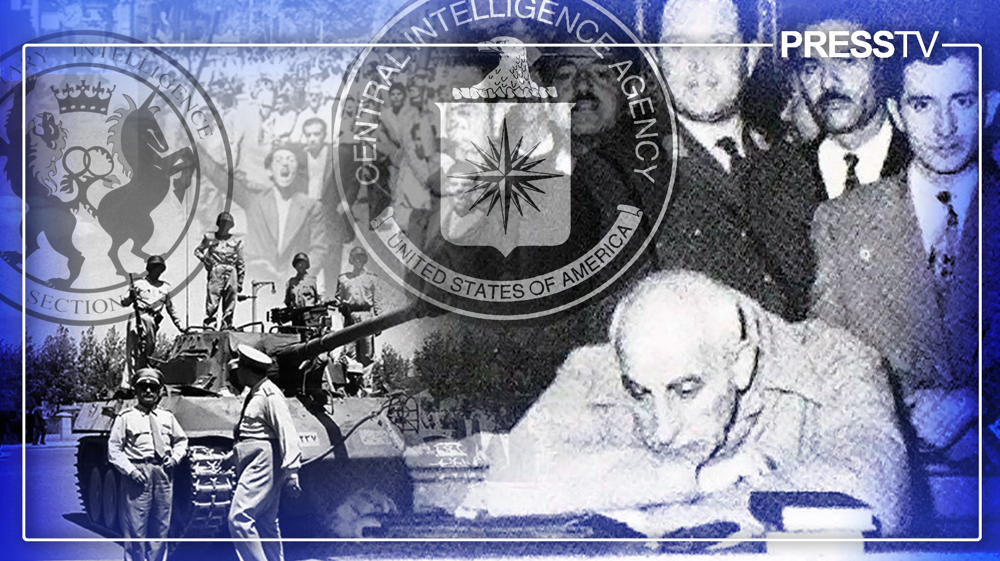

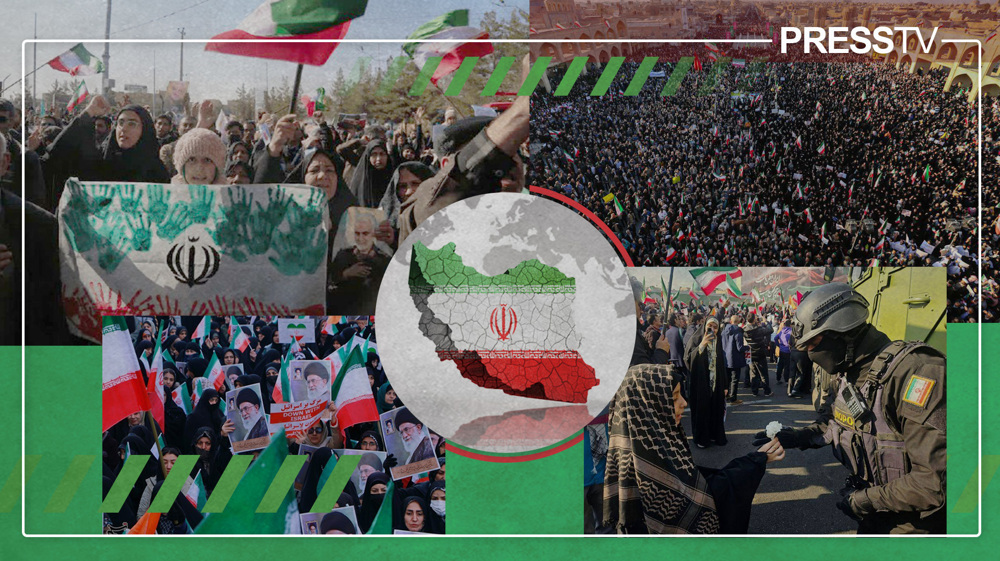
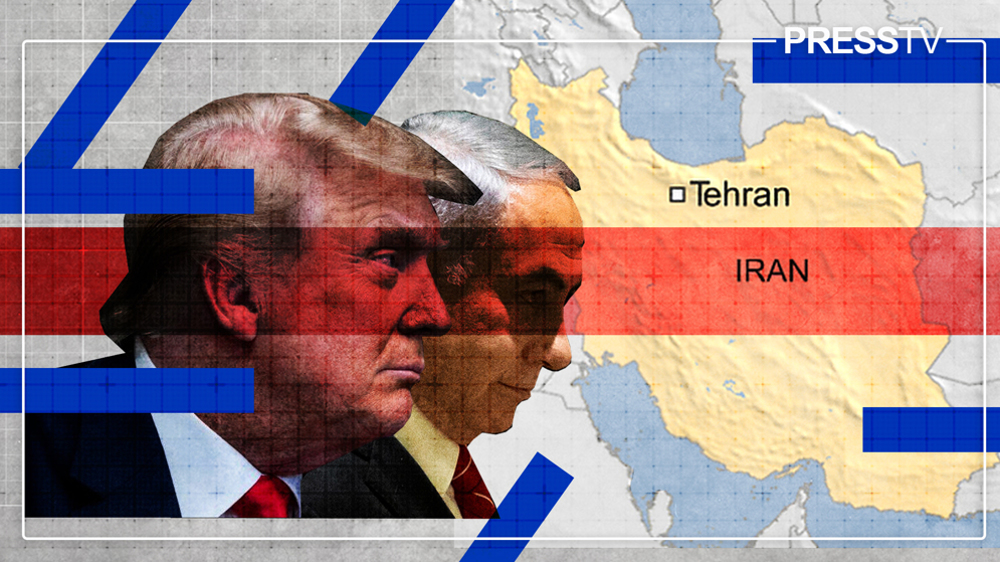



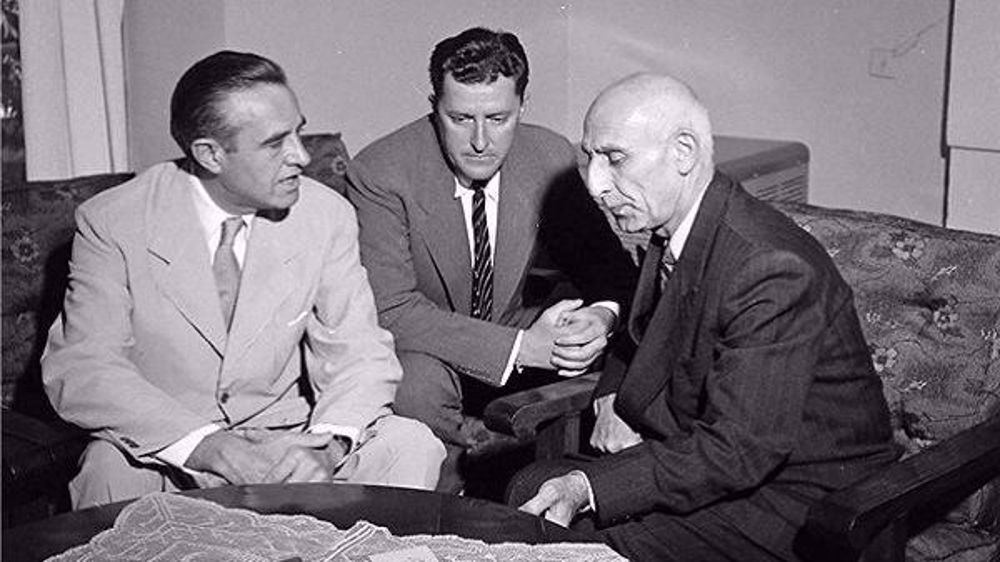
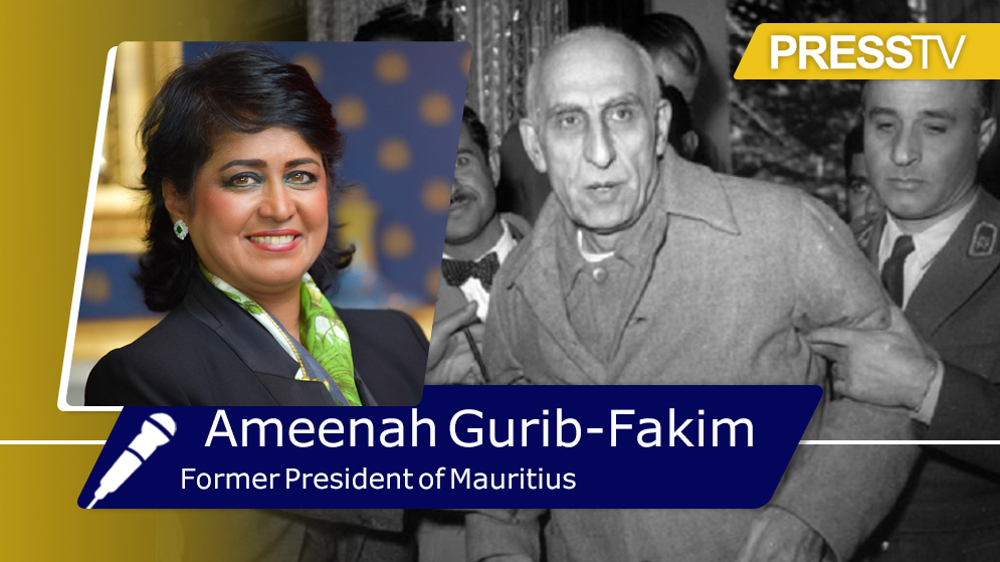
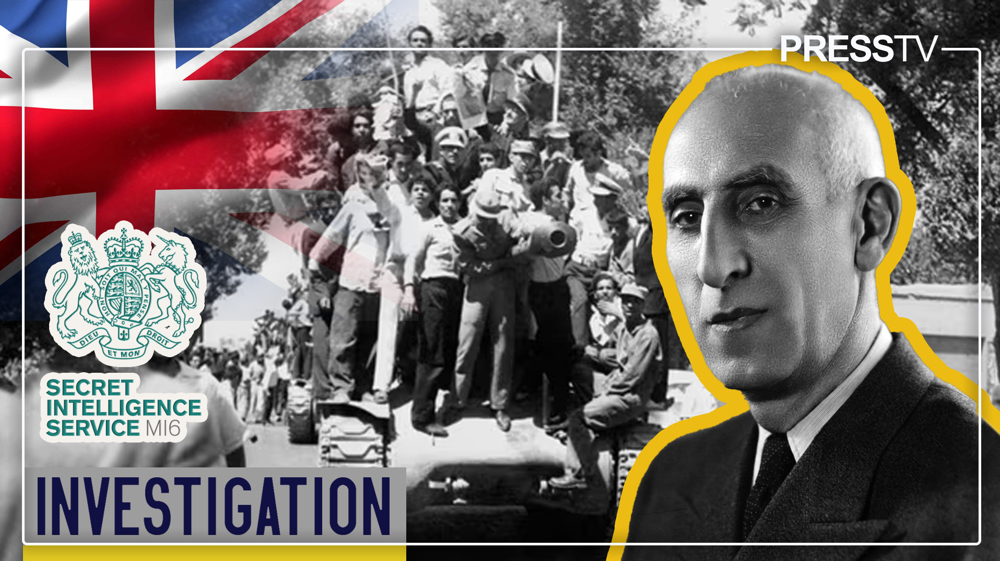
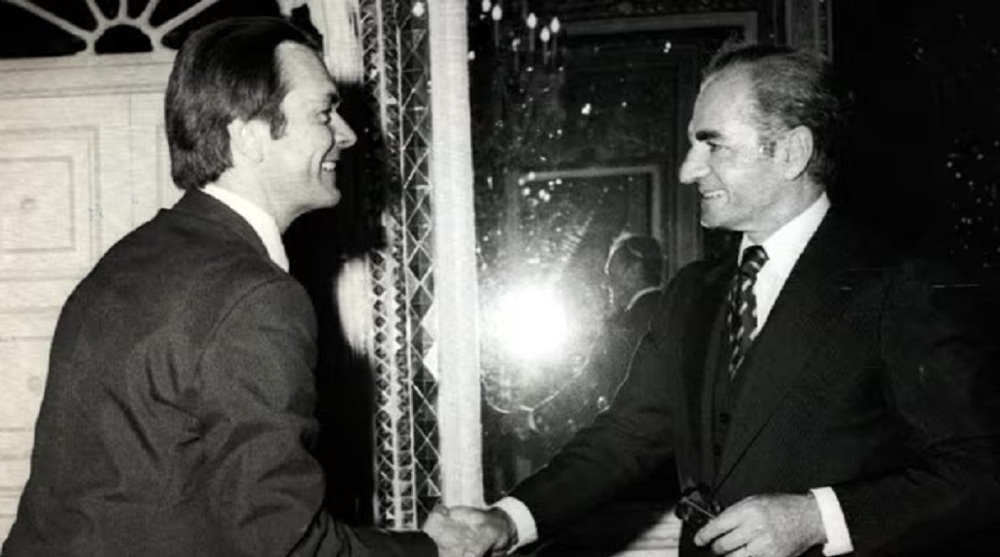
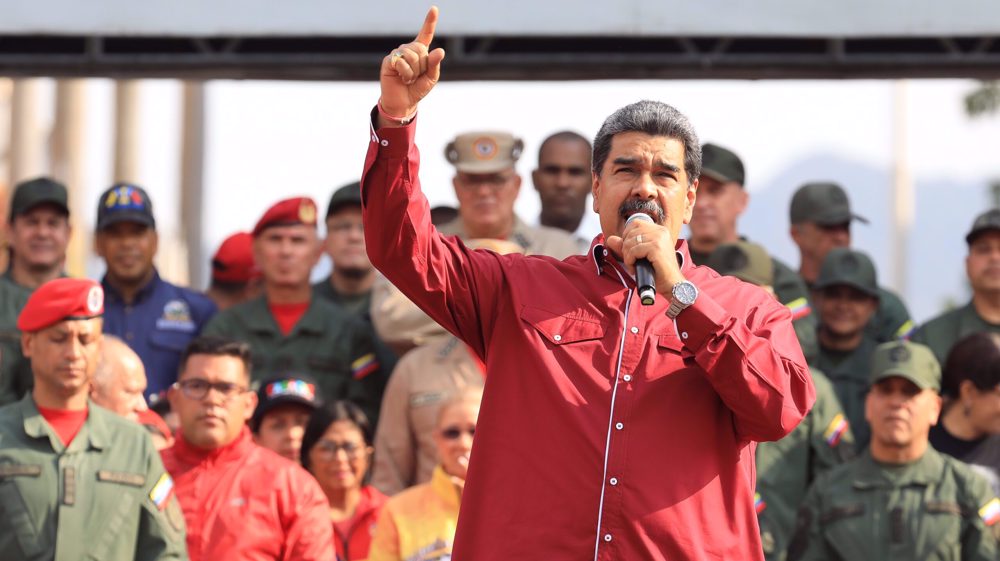

 This makes it easy to access the Press TV website
This makes it easy to access the Press TV website